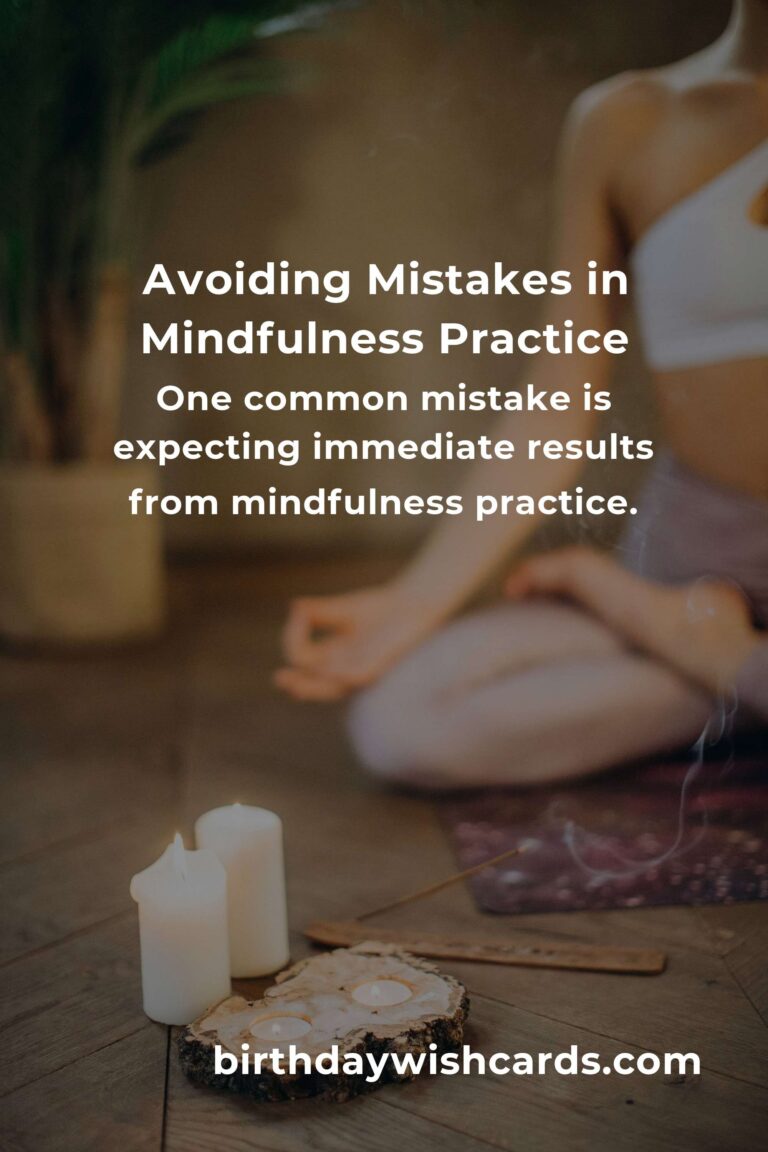
Mindfulness has become a popular practice for improving mental well-being and achieving a more balanced life. However, many people encounter common pitfalls when attempting to incorporate mindfulness into their daily routines. This article explores these mistakes and offers guidance on how to avoid them for a more effective mindfulness practice.
Understanding Mindfulness
Mindfulness is the practice of being present and fully engaged with the current moment, without judgment or distraction. It involves paying attention to thoughts, feelings, and sensations in a non-reactive way. While mindfulness can be practiced through meditation, it can also be integrated into everyday activities.
Common Mistakes in Mindfulness Practice
1. Expecting Immediate Results
One of the most common mistakes is expecting immediate results from mindfulness practice. Many people anticipate quick changes in their mental state or stress levels, which can lead to frustration. Mindfulness is a gradual process that requires consistent practice over time.
2. Being Too Hard on Yourself
Another mistake is being overly critical of oneself when the mind wanders during mindfulness practice. It is natural for thoughts to arise, and the goal is to gently bring attention back to the present moment without judgment.
3. Lack of Consistency
Inconsistency in practice can hinder progress. Practicing mindfulness sporadically will not yield the same benefits as a regular, dedicated routine. Setting aside time each day for mindfulness, even if it’s just a few minutes, can make a significant difference.
4. Multitasking During Mindfulness
Attempting to multitask while practicing mindfulness defeats the purpose of being fully present. It is important to dedicate time solely to mindfulness without engaging in other activities simultaneously.
5. Misunderstanding Mindfulness as Relaxation
While mindfulness can lead to relaxation, it is not synonymous with it. Mindfulness is about awareness and presence, which may not always be relaxing. Understanding this distinction is crucial for realistic expectations.
How to Avoid These Mistakes
Embrace the Journey
Understand that mindfulness is a journey, not a destination. Be patient with yourself and allow the practice to unfold naturally.
Practice Self-Compassion
When your mind wanders, recognize it without criticism and gently refocus your attention. Self-compassion is key to a successful mindfulness practice.
Establish a Routine
Create a consistent mindfulness routine that fits your lifestyle. Whether it’s a daily meditation session or mindful breathing exercises, regular practice is essential.
Focus on One Task
During mindfulness practice, focus on one task at a time. Whether it’s mindful eating or walking, engage fully with the activity and avoid distractions.
Redefine Success
Redefine what success in mindfulness means to you. It may not always result in relaxation but can lead to greater awareness and presence in your daily life.
Conclusion
By understanding and avoiding these common mistakes, you can enhance your mindfulness practice and enjoy its full benefits. Remember to be patient, compassionate, and consistent in your approach. Mindfulness is a valuable tool that can transform your life if practiced correctly.
Embrace mindfulness as a way of living, and you will find greater peace and clarity in your daily experiences.
Mindfulness is the practice of being present and fully engaged with the current moment. One common mistake is expecting immediate results from mindfulness practice. Being too hard on oneself when the mind wanders is another common pitfall. Inconsistency in practice can hinder progress. Understanding that mindfulness is a journey, not a destination, is crucial.
#Mindfulness #MentalWellbeing #MindfulnessMistakes #MindfulLiving #SelfCompassion













